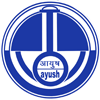Manuscripts

Ashraf al-Asrar(اشرف الاسرار)
Introductory
| S.NO : | 4292 | AMAR ID : | AMAR/MS/4292 |
|---|---|---|---|
| TITLE OF THE MANUSCRIPT : | Ashraf al-Asrar(اشرف الاسرار) | SOURCE LOCATION : | Ibn Sina Academy of Medieval Medicine and Sciences (IAMMS), Aligarh, UP, India |
| PLACE & STATE : | Uttar Pradesh | ACCESSION NO. AT SOURCE : | |
| ACCESSION NO.AT NIIMH, HYDERBAD : | 105 |
Technical
| OTHER TITLE : | INA/ | AUTHOR NAME : | Hakim Ashraf Muhammad Khan(حکیم اشرف محمد خان)/INA |
|---|---|---|---|
| CO-AUTHOR NAME : | INA | REDACTOR'S NAME : | INA |
| COMMENTATOR NAME : | NAME OF THE COMMENTARY : | ||
| LANGUAGE OF THE COMMENTATOR: | AUTHOR DATE : | INA | |
| COMMENTATOR DATE : | SCRIBE : | ||
| SCRIBE DATE AND PLACE : | AYUSH SYSTEM : | Unani | |
| SUBJECT: | Moalajat(Therapeutics) | LANGUAGE : | Persian |
| SCRIPT : | Persian |
Textual
| AUTHOR'S BEGINNING SENTENCE (UNICODE)/(DIACRITICAL) : | Is Marz k Karda hai lag usko wasta munasibatlafzi/ | ||
|---|---|---|---|
| SCRIBE'S BEGINNING SENTENCE (UNICODE)/(DIACRITICAL) : | / | ||
| AUTHOR'S ENDING SENTENCE (UNICODE)/(DIACRITICAL) : | Balchad teezpat Narkachur sandal sufaid chadhela/ | ||
| SCRIBES ENDING SENTENCE (UNICODE)/(DIACRITICAL) : | /INA | ||
| COLOPHON (UNICODE)/(DIACRITICAL) : | 1296 AH (1879 AD)/ | CHAPERTIZATION: | Chapterised |
| EXTENT : | Incomplete, Some Folios are missing in the beginning | ||
| REMARKS : | Red letters were not seen in the manuscript especially to highlight the chapters | ||
Physical
| MATERIAL : | SIZE : | ||
|---|---|---|---|
| No. of FOLIOS : | 52 | No. of PAGES : | 105 |
| No. of LINES PER FOLIOS : | No. of LINES PER PAGE: | 14 | |
| No. of LETTERS PER LINE : | 12 | GRANTHAMANA : | |
| MISSING FOLIOS : | Some Folios are missing in the beginning | ILLUSTRATIONS : | |
| CONDITION : | Good, Readable |
Catalogue
| CATALOGUE STATUS : | CATALOGUE MSS.NUMBER : | ||
|---|---|---|---|
| CATALOGUE TITLE : | INA | CATALOGUE PART : | INA |
| CATALOGUE VOLUME : | INA | CATALOGUE EDITOR: | INA |
| CATALOGUE PUBLISHER : | INA | CATALOGUE YEAR OF PUBLICATION : | INA |
| CATALOGUE ADDITIONAL DETAILS : | INA |
Publication Details
| PUBLICATION STATUS : | No data was found | PUBLICATION LANGUAGE : | INA |
|---|---|---|---|
| PUBLICATION AVAILABILITY : | INA | PUBLICATION EDITOR : | INA |
| PUBLICATION TRANSLATOR : | INA | PUBLICATION PUBLISHER: | INA |
| PUBLICATION YEAR: | INA | PUBLICATION PLACE : | INA |
| ABOUT MANUSCRIPT : | Ashraf al-Asrar is a manuscript that intricately explores the treatment of various diseases within the framework of Unani medicine. It is structured into several chapters, each dedicated to specific ailments, providing detailed insights into their characteristics, symptoms, and traditional treatment approaches. Here's an overview based on the information provided: 1. **Sarsam**: Likely refers to epilepsy or convulsions. The manuscript would cover its symptoms and traditional treatments. 2. **Sakta**: This could refer to paralysis or palsy, discussing its manifestations and therapeutic interventions in Unani medicine. 3. **Falij (Stroke)**: Detailed coverage of stroke, including its symptoms, causes according to Unani principles, and treatment methods.4. **Tahshannuj (Spasm)**: Discussion on spasms, their types, symptoms, and therapeutic measures in Unani therapy. 5. **Tamaddud (Stretching)**: Likely refers to muscle stretching disorders, with insights into its diagnosis and treatment. 6. **Kuzaz (Tetanus)**: Coverage of tetanus, including its symptoms, pathophysiology from a Unani perspective, and treatment protocols. 7.*Laqwa (Facial Paralysis)**: Detailed description of facial paralysis, its etiology, symptoms, and therapeutic strategies employed in Unani medicine. 8. **Ikhtilaj (Palpitation)**: Discussion on palpitations, exploring causes, symptoms, and treatment approaches within Unani theory. 9. **Khadr (Numbness)**: Likely refers to sensory numbness, discussing its manifestations, underlying causes, and treatment modalities. Each chapter in 'Ashraf al-Asrar' provides valuable insights into these specific diseases from a traditional Unani viewpoint, offering practitioners and scholars a comprehensive understanding of how these ailments are diagnosed and managed using Unani therapeutic principles and practices. | ||
Digitization Status
| DIGITIZED BY : | CCRAS-NIIMH | DIGITIZATION DATE : | March 2023 |
|---|
